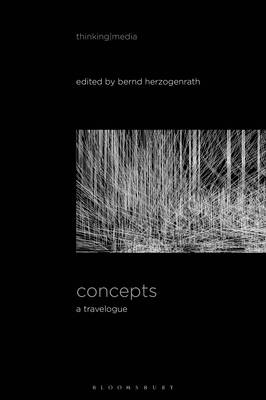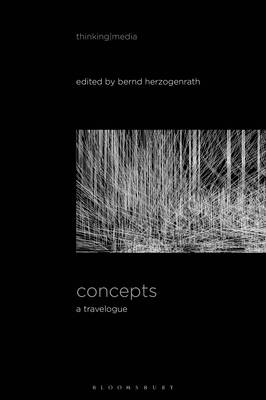
Bedankt voor het vertrouwen het afgelopen jaar! Om jou te bedanken bieden we GRATIS verzending (in België) aan op alles gedurende de hele maand januari.
- Afhalen na 1 uur in een winkel met voorraad
- In januari gratis thuislevering in België
- Ruim aanbod met 7 miljoen producten
Bedankt voor het vertrouwen het afgelopen jaar! Om jou te bedanken bieden we GRATIS verzending (in België) aan op alles gedurende de hele maand januari.
- Afhalen na 1 uur in een winkel met voorraad
- In januari gratis thuislevering in België
- Ruim aanbod met 7 miljoen producten
Zoeken
Omschrijving
This book foregrounds that English monolingualism reduces both our linguistic and conceptual resources, presenting concepts from the cultures of 4 continents and 26 languages.
Concepts seem to work best when created in the interspace between theory and praxis, and between philosophy, art, and science. Deleuze himself had generated many concepts in this encounter between philosophy and non-philosophy, including his ideas of affects and percepts, of becoming, the stutter, the rhizome, movement-image and time-image, the rhizome. What happens, if instead of "other disciplines," we take other cultures, other languages, other philosophies? Does not the focus on English as a hegemonic language of academic discourse deny us a plethora of possibilities, of possible Denkfiguren, of possible concepts?
Each contributor explores ideas that are key to thinking in their language - about sound and silence, voice and image, living and thinking, the self and the world - while simultaneously addressing the issue of translation. Each chapter demonstrates that translation itself is a way of invention, rather than just a rendering of concepts from one system in terms of another. This collection acts as a travelogue. The journey does not follow a particular trajectory-some countries are not on the map; some are visited twice. So, there is no claim to completeness involved here-it is rather an invitation to answer to the call.
Concepts seem to work best when created in the interspace between theory and praxis, and between philosophy, art, and science. Deleuze himself had generated many concepts in this encounter between philosophy and non-philosophy, including his ideas of affects and percepts, of becoming, the stutter, the rhizome, movement-image and time-image, the rhizome. What happens, if instead of "other disciplines," we take other cultures, other languages, other philosophies? Does not the focus on English as a hegemonic language of academic discourse deny us a plethora of possibilities, of possible Denkfiguren, of possible concepts?
Each contributor explores ideas that are key to thinking in their language - about sound and silence, voice and image, living and thinking, the self and the world - while simultaneously addressing the issue of translation. Each chapter demonstrates that translation itself is a way of invention, rather than just a rendering of concepts from one system in terms of another. This collection acts as a travelogue. The journey does not follow a particular trajectory-some countries are not on the map; some are visited twice. So, there is no claim to completeness involved here-it is rather an invitation to answer to the call.
Specificaties
Betrokkenen
- Uitgeverij:
Inhoud
- Aantal bladzijden:
- 406
- Taal:
- Engels
- Reeks:
Eigenschappen
- Productcode (EAN):
- 9781501375309
- Verschijningsdatum:
- 27/06/2024
- Uitvoering:
- Paperback
- Formaat:
- Trade paperback (VS)
- Afmetingen:
- 140 mm x 216 mm
- Gewicht:
- 467 g

Alleen bij Standaard Boekhandel
+ 135 punten op je klantenkaart van Standaard Boekhandel
Beoordelingen
We publiceren alleen reviews die voldoen aan de voorwaarden voor reviews. Bekijk onze voorwaarden voor reviews.








